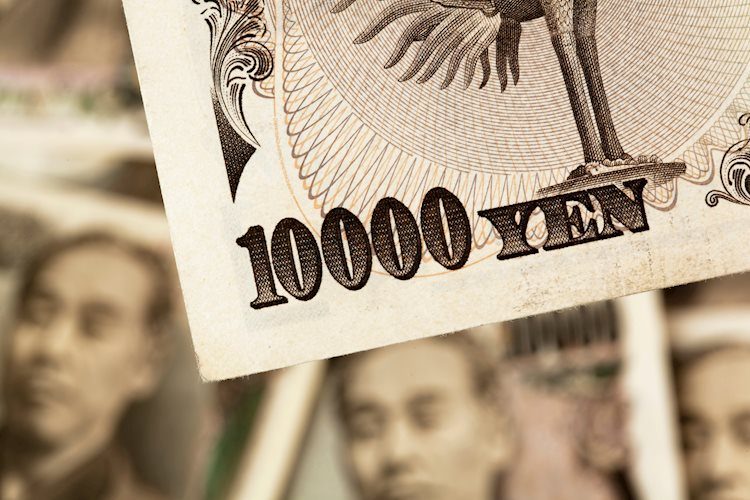- The Japanese Yen recovers a bit against the USD, from over a two-month low set on Monday.
- The BoJ rate-hike uncertainty and the upbeat market mood could cap gains for the safe-haven JPY.
- Bets for smaller interest rate cuts by the Fed underpin the USD and favor the USD/JPY bulls.
The Japanese Yen (JPY) edges higher against its American counterpart during the Asian session on Tuesday and reverses a part of the previous day’s losses to the 150.00 psychological mark, or the lowest level since early August. Any meaningful upside for the JPY, however, still seems elusive in the wake of the uncertainty over the Bank of Japan’s (BoJ) rate-hike plans. Apart from this, the prevalent risk-on environment might contribute to capping the safe-haven JPY.
Meanwhile, traders no longer expect another outsized interest rate cut by the Federal Reserve (Fed) in November, which had been a key factor behind the recent upswing in the US Treasury bond yields. This, in turn, keeps the US Dollar (USD) well supported near a two-month peak and could further undermine the low-yielding JPY. Hence, any subsequent slide in the USD/JPY pair might be seen as a buying opportunity and is more likely to remain limited.
Daily Digest Market Movers: Japanese Yen seems vulnerable amid diminishing odds for more BoJ rate hikes in 2024
- Japanese Prime Minister Shigeru Ishiba’s recent comments successfully pushed back market expectations for any further interest rate increases by the Bank of Japan (BoJ) in the near term.
- US equity indices carried forward the upward momentum on Monday, with the S&P 500 and the Dow Jones Industrial Average hitting new record highs amid hopes for solid earnings.
- The US Dollar built on its recent gains registered over the past two weeks or so and shot to its highest level since August 8 amid bets for smaller interest rate cuts by the Federal Reserve.
- Minneapolis Fed President Neel Kashkari said on Monday that the recent jobs data shows labor market isn’t weakening and the path of policy to be driven by data, the economy’s performance.
- Separately, Fed Governor Christopher Waller noted the US central bank should proceed with more caution on interest rate cuts than was needed at the September policy meeting.
- According to the CME Group’s FedWatch Tool, traders are pricing in a greater chance of a regular 25 basis points rate reduction in November and over a 15% probability of a no-cut.
- A quick increase in 10-year US government bond yields over the last few weeks to levels beyond the 4% threshold favors the USD bulls and should cap the low-yielding Japanese Yen.
- Traders now look to the release of the Empire State Manufacturing Index for some impetus later during the North American session ahead of speeches by influential FOMC members.
Technical Outlook: USD/JPY bulls retain control near two-month top; move beyond 150.00 psychological mark awaited
From a technical perspective, any further slide is more likely to attract dip-buying near the 149.00 mark. This might help limit the downside for the USD/JPY pair near the 148.55-148.50 region. The latter is likely to act as a key pivotal point, which if broken might prompt aggressive selling and drag spot prices below the 148.00 round figure, towards last week’s swing low, around the 147.35-147.30 area.
On the flip side, sustained strength and acceptance above the 150.00 psychological mark will be seen as a fresh trigger for bullish traders. Given that oscillators on the daily chart are holding in positive territory and are still away from being in the overbought zone, the USD/JPY pair might then aim to challenge the August monthly swing high, around the 150.85-150.90 region. Some follow-through buying beyond the 151.00 round figure will suggest that spot prices have bottomed out and pave the way for a further near-term appreciating move.
Japanese Yen FAQs
The Japanese Yen (JPY) is one of the world’s most traded currencies. Its value is broadly determined by the performance of the Japanese economy, but more specifically by the Bank of Japan’s policy, the differential between Japanese and US bond yields, or risk sentiment among traders, among other factors.
One of the Bank of Japan’s mandates is currency control, so its moves are key for the Yen. The BoJ has directly intervened in currency markets sometimes, generally to lower the value of the Yen, although it refrains from doing it often due to political concerns of its main trading partners. The BoJ ultra-loose monetary policy between 2013 and 2024 caused the Yen to depreciate against its main currency peers due to an increasing policy divergence between the Bank of Japan and other main central banks. More recently, the gradually unwinding of this ultra-loose policy has given some support to the Yen.
Over the last decade, the BoJ’s stance of sticking to ultra-loose monetary policy has led to a widening policy divergence with other central banks, particularly with the US Federal Reserve. This supported a widening of the differential between the 10-year US and Japanese bonds, which favored the US Dollar against the Japanese Yen. The BoJ decision in 2024 to gradually abandon the ultra-loose policy, coupled with interest-rate cuts in other major central banks, is narrowing this differential.
The Japanese Yen is often seen as a safe-haven investment. This means that in times of market stress, investors are more likely to put their money in the Japanese currency due to its supposed reliability and stability. Turbulent times are likely to strengthen the Yen’s value against other currencies seen as more risky to invest in.
Read the full article here

